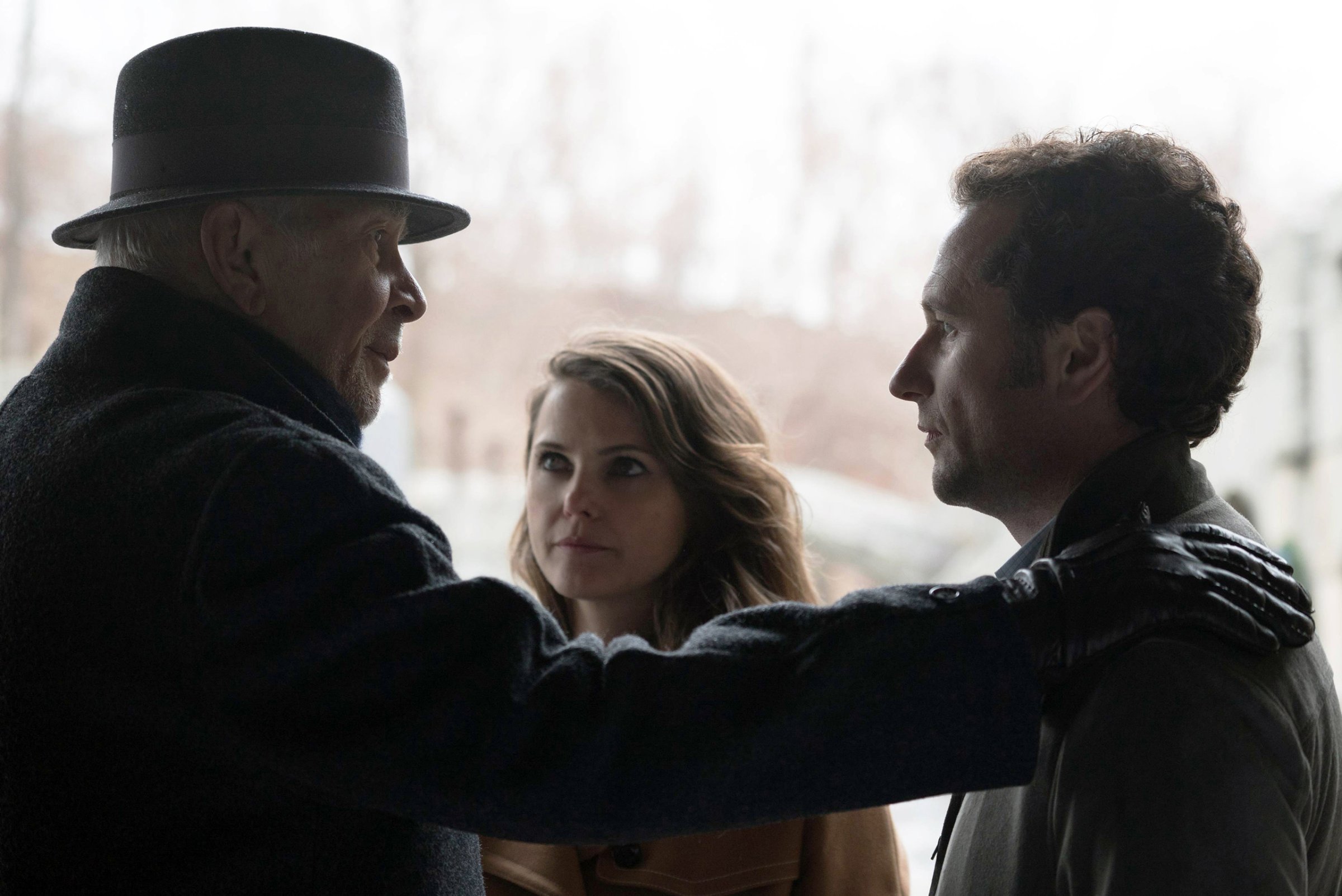
The writers for The Americans closed out their best season yet the best way possible—by indicating bigger things lay ahead.
The FX spy series wrapped up its fourth season Wednesday night. It appeared to wrap up one major story: The season-long plotline about the Soviets having possession of a bioweapon came to a head when William (Dylan Baker) purposely infected himself before falling into FBI custody. Gravely ill in the agents’ custody, William recalled his wraith-like invisibility. “It made me feel special, like I was the star in my very own movie,” he said, before noting that he’d spent his entire life without making meaningful connections. “The absence of closeness,” he said as his internal organs became a puree, “makes you dry inside.”
On The Americans, even the second-string spy whose main function was bioweapon maintenance gets a fully realized personality. The entire season finale seemed like a comment on jadedness and exhaustion, as the thrill has long since gone for both our central spies Philip and Elizabeth and for their allies and adversaries. “I know you’ve always been in danger,” said their handler Gabriel (Frank Langella), strongly suggesting that Philip and Elizabeth move back to the USSR, “but that can dull the senses.”
Philip (Matthew Rhys) has been even more depressed than usual throughout the season, but is now compelled, with his wife (Keri Russell), to behave strategically against threats from Soviets and Americans alike; one of the moments of greatest tension in the episode came when William, deep in the throes of sadness, seemed close to giving away their identity to the FBI. As we get closer to the end of the Cold War and the end of the series (which FX has announced will arrive after two more seasons), the mission has substantially changed, from effectively subverting the U.S. to trying to survive within it. There’s no reason why true believers like Philip and Elizabeth shouldn’t return to the Soviet Union but for their children, the product of an arranged marriage conceived at least in part as an element of an all-American alias. And yet those children’s lives in America have come to take precedence over the mission.
And why not? In four seasons so far, Philip and Elizabeth have failed to bring down the government, and their most potent schemes (like engaging an FBI secretary in a long-term relationship to get intel, or like keeping a powerful biological weapon on ice just in case) have, especially lately, tended to go badly awry. They’re not bad spies at all, but this season of The Americans made clear that they’ve shed the expectation of winning. Just as William gets more of a story on The Americans than another show would have given him, so is The Americans unusually willing to depict just how small-time some of Philip and Elizabeth’s tasks are. It resonates, deeply, when a new age leader tells Philip in the finale that he “ain’t that important.” For all his dramatic sense of himself and his family, he’s done relatively little to forestall America’s eventual triumph.
That makes The Americans a bit of a Trojan horse—a series nominally about the exploits of spies that has come to tell a sophisticated story of futility and moral confusion, one with no right answers. It’s no wonder that its ratings leave something to be desired: Unlike popcorn shows like The Walking Dead and Game of Thrones, or limited series whose short runs leave them free to make sweeping moves, The Americans has brought us to where we are through incrementalism. It’s a way forward for TV dramas, which have lately favored bold, loud sloppiness (in, say, the House of Cards or Billions mode) over craftsmanship.
That painstaking care shows through in the fact that the final moments are about something quite so small, rather than a bioweapon or bomb. The season closes with Philip yelling at his daughter Paige (Holly Taylor) for her romantic interest in the son of the FBI agent neighbor, and striding into a home that looks alternately like a prison or a safe haven, depending on how he feels moment-to-moment about the mother nation that’s summoning him home against his will. He’s right to be concerned and to insist that his daughter cut off this connection, but it feels as though it doesn’t matter in an existential sense: Sooner or later, Philip and Elizabeth are going to run out of luck. After all, they may be our stars, but even they aren’t important enough to evade the inevitable.
More Must-Reads from TIME
- Donald Trump Is TIME's 2024 Person of the Year
- Why We Chose Trump as Person of the Year
- Is Intermittent Fasting Good or Bad for You?
- The 100 Must-Read Books of 2024
- The 20 Best Christmas TV Episodes
- Column: If Optimism Feels Ridiculous Now, Try Hope
- The Future of Climate Action Is Trade Policy
- Merle Bombardieri Is Helping People Make the Baby Decision
Contact us at letters@time.com